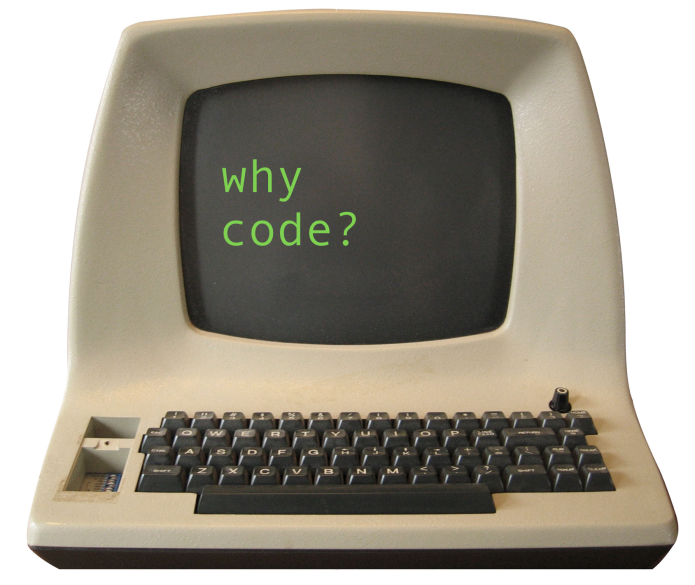Do your kid a favour, let him/her use the computer. Do yourself a favour, use the computer with your kid. I am sure you will learn a thing or two. Change in technology is not a trend that will pass.

Don't get outsmarted - code or die
Take a moment to think about why you learned to read? It’s obvious you might say, everyone should learn how to read and write. Not all of us are authors, but we still need to write to communicate and express ourselves. Back in the 14th century, most people did not see the point to read, and it was left to those who had professions that required reading.
So why code? Why can't you just leave that to the geeks, professional programmers, and those who need to code at work?
Coding has been around for centuries
The first computer programmer, Ada Lovelace, was a poetical scientist and mathematical genius who developed an algorithm for the Babbage analytical engine.
For centuries mankind has had an interest in computer science, but not quite the computer as we think of today. If I told you that the allies won World War II thanks to computer science, would you believe me? Thanks to Alan Turing and his interest in computer science, the German's Enigma machine was decrypted. A “Turing Machine” is a model for today's computers.
“This nation should commit itself to achieving the goal, before the decade is out, of landing a man on the moon and returning him safely to the earth”
...John F. Kennedy stated in 1961. Eight years later, Niel Armstrong and Buzz Aldrin landed on the Moon. All thanks to a computer. Calculation of the flight profile was too advanced for manual work and therefore the flight profile was done by a computer. It would not be possible to land on the moon without the complexity and science behind the computer.
For years, computers were not for everyone and were also expensive. Today nearly everyone has a computer, and the phone in your pocket is actually a small computer that could calculate one million moon landings. The technology is growing exponentially. Moore’s Law indicates that computer power is doubling every second year and that we can expect a single computer to be more powerful than the brain by 2025.
Education needs to adapt
A friend of mine was worried that technology would outsmart us. If we do not understand their language, the barrier between humans and computers will increase. To understand the computers we have to know their language.
A reality today is that some McDonald's restaurants are run by robots, and about 70% of fast food workers can be replaced. This does not have to mean that people will lose their jobs, we still need people to program and oversee the computers. Their work will change, and education needs to adapt.
More than a 100 years ago, traffic lights were humans. They have now been replaced by technology, but there are still humans who code and control the traffic lights behind the scenes.
More and more companies are redefining themselves as software companies.
We’ve gone from Blockbuster video to Netflix, bank branches are replaced with online banking. You can still rob a bank, but not in the traditional way. Bank clerks are replaced with system owners that know information technology. Banking today gives us more flexibility and safety, but we need to be on top of our game. On top of the coders game. To understand the machines we need to code, to fight internet crime we need to code.
“Everything that can be automated will be automated”, Shoshana Zuboff
Do your kid a favour, let him/her use the computer. Do yourself a favour, use the computer with your kid. I am sure you will learn a thing or two. Change in technology is not a trend that will pass.
Links:
Ada Lovelace
Babbage Analytical Engine
Apollo 11 guidance computer
Source code for Apollo 11 guidance computer
code.org
Khan Academy
